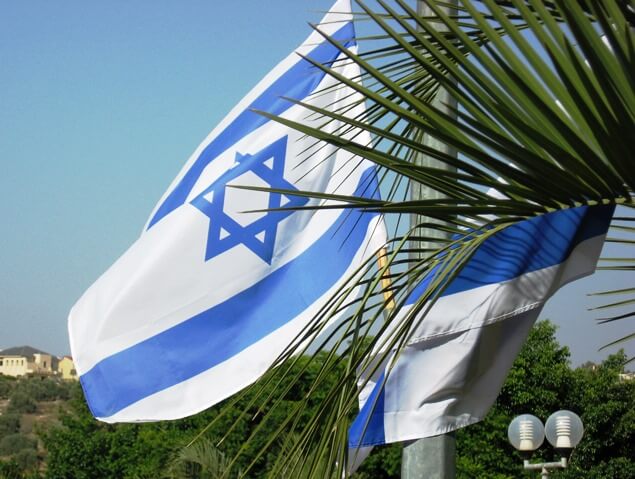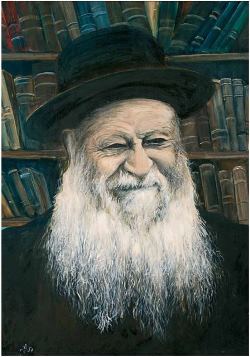
On Independence Day, the 5th of Iyar 5727 (1967), a few weeks before the outbreak of the Six-Day War, Rabbi Tzvi Yehudah Kook delivered what would become his most celebrated lecture: “Mizmor 19 for the State of Israel.” For many, it was a prophetic vision heralding the historical events of the coming weeks.
Speaking at the Mercaz HaRav yeshiva, the rabbi decried the loss of Jerusalem’s Old City and the ancestral cities of Hebron and Jericho. “My land they have divided!” (Joel 4:2).
But most of his speech stressed the importance of appreciating the establishment of the State of Israel, and its place as a key step in Israel’s redemption. In particular, he spoke of the 19th chapter of Psalms, and its relevance to the 19th year of Israel’s independence. Below are some of the major points.

Is This Redemption?
Some people have difficulty relating our current reality to the biblical prophecies of Israel’s redemption. They ask, “Is this the state that our prophets envisioned?”
Rav Tzvi Yehudah’s response was emphatic: “Yes! This is the state that the prophets envisioned.”
Of course, the State of Israel is not yet perfect. But this is what our prophets and our sages foretold: The descendants of Abraham, Isaac, and Jacob will return to the Land; they will settle it and establish independent political rule. The prophets did not say whether those who return to the Land will be righteous men and women. The prophet said, “When I will have gathered the House of Israel... they will settle in their own land... They will build houses and plant vineyards.” (Ezek. 28:25-26).
The prophet spoke of real vineyards, not metaphorical ones.
Certainly, as a result of the Jewish people returning to their Land, there will be a subsequent growth in Torah. But the first step is to settle the Jewish people in their Land.
The Process of Redemption
Redemption, Rav Tzvi Yehudah emphasized, is a process. One that is gradual and continuous. Every year of our national independence is a new mizmor, a new celestial song, another link in the chain of redemption. This year, we sing the 19th psalm.
Psalm 19 has two distinct parts. In the first half, the psalmist perceives the wonders of God in nature, sensing God’s manifestation in the universe. “The heavens declare God’s glory, the sky proclaims His handiwork.“ (Ps. 19:2)
The second half, on the other hand, speaks of God’s illuminating Torah and commandments. “God’s Torah is perfect, restoring the soul… God’s precepts are just, rejoicing the heart.” (Ps. 19:8-9)
Both the Kuzari and Maharal expounded upon the connection between these two sections. God’s grandeur is revealed in the majestic world of nature. But, as we ascend in holiness, we perceive the immense power of God’s revelation through the Torah, given to Israel.
This is the primary lesson of Psalm 19. From within our earthly nature, we reach out to the spiritual and the heavenly. “We build with mundane materials, and sanctify it afterward“ (Me'ilah 14a). We are commanded to engage in earthly matters, to be God’s partners work of creation. We assist the Master of the universe as we increase Torah in the sovereign state of Israel.
Seeing the Big Picture
Undoubtedly, there are many problems and challenges in our current situation. There exist evil people in the country and the government. This hurts deeply; it is a Chillul Hashem, desecrating God’s Name. We cannot ignore this.
But the Sages taught that we need to keep things in perspective. The Jerusalem Talmud states: “Kiddush Hashem — sanctifying God’s Name — is greater than Chillul Hashem“ (JT Kiddushin 4:1). What does this mean? Obviously, Kiddush Hashem is better than Chillul Hashem!
The Talmud is teaching: in a situation when there are both Kiddush Hashem and Chillul Hashem, Kiddush Hashem wins out. We have merited the great Kiddush Hashem described by the prophets:
“I will sanctify My great name which has been profaned among the nations... I will take you from among the nations and gather you from all the countries, and I will bring you back to your own land.” (Ezek. 36:23-24).
This wondrous Kiddush Hashem, as Israel returns to its homeland and biblical prophecies are realized, eclipses all specific instances of Chillul Hashem.
(Adapted from LeNetivot Yisrael vol. II, pp. 156-161)





